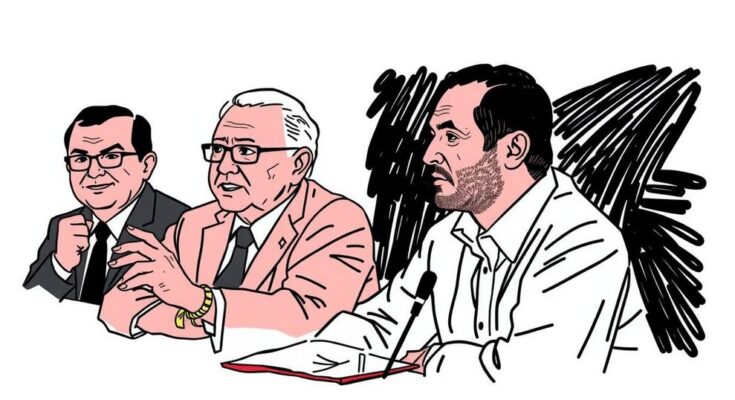The UN has announced a new initiative to resolve Libya’s political stalemate and facilitate presidential elections. The plan involves creating an advisory committee to review electoral laws and engage with various Libyan groups to achieve inclusivity. Stephanie Koury, the acting head of UNSMIL, highlighted the importance of broad societal participation, particularly from youth and women, emphasizing the need for unity and international support to overcome the obstacles facing Libya today.
The United Nations has proposed a comprehensive plan to address the persistent political deadlock in Libya and facilitate long-awaited presidential elections, as outlined in a briefing to the UN Security Council. Stephanie Koury, the acting head of the UN Support Mission in Libya (UNSMIL), emphasized the implementation of an advisory committee tasked with reviewing electoral laws and providing actionable proposals for a clear roadmap for elections. The committee will include experts from diverse Libyan political, social, and cultural backgrounds to ensure inclusivity in the electoral process.
To foster a unified national vision for Libya’s future, UNSMIL will engage Libyan stakeholders in structured dialogues, particularly emphasizing the importance of participation from women and youth. Koury highlighted the significance of building national unity and enhancing the legitimacy of the political framework as essential steps moving forward. The backdrop of this initiative is a decade of political division and instability that has plagued Libya since the fall of former leader Muammar Gaddafi in 2011.
In her address, Koury acknowledged the urgent desire of the Libyan populace for democratic governance and transparent elections, referencing the recent successful local elections held on November 16 as evidence of this desire. She stressed the unsustainable nature of the current political situation and noted the detrimental effects of unilateral actions by political elites that have undermined the country’s institutional integrity.
Koury also addressed various challenges facing Libya, including arbitrary detentions and the necessity for transparent investigations into custody-related deaths. Additionally, she drew attention to the implications of regional conflicts, particularly the influx of Sudanese refugees due to instability in neighboring Sudan.
In concluding her presentation, Koury urged the international community to support the proposed plan, emphasizing that achieving a lasting political settlement will require the collective commitment of Libya’s political actors and strategic international cooperation. She underscored the capabilities of the Libyan people in reaching compromises necessary for effective governance and electoral processes, calling for unified support to facilitate the country’s progress towards stability and democracy.
The political landscape in Libya has remained complex and unstable since the overthrow of Muammar Gaddafi in 2011. The country has been divided between rival factions, with the internationally recognized Government of National Unity based in the northwest and the Government of National Stability in the east. Attempts to hold national elections have been hampered by disputes over electoral laws and candidate eligibility, resulting in widespread calls for political reform and legitimate governance among the Libyan populace.
The UN’s new plan for Libya aims to resolve long-standing political disputes and restore legitimacy through structured dialogues and inclusive electoral processes. Given the urgent desire for change among the Libyan people and the challenges posed by ongoing political divisions and regional instability, it is crucial for both local leaders and the international community to collaborate effectively to establish a stable and democratic governance framework. Achieving these goals will require political will, transparency, and a commitment to inclusive participation.
Original Source: news.un.org




